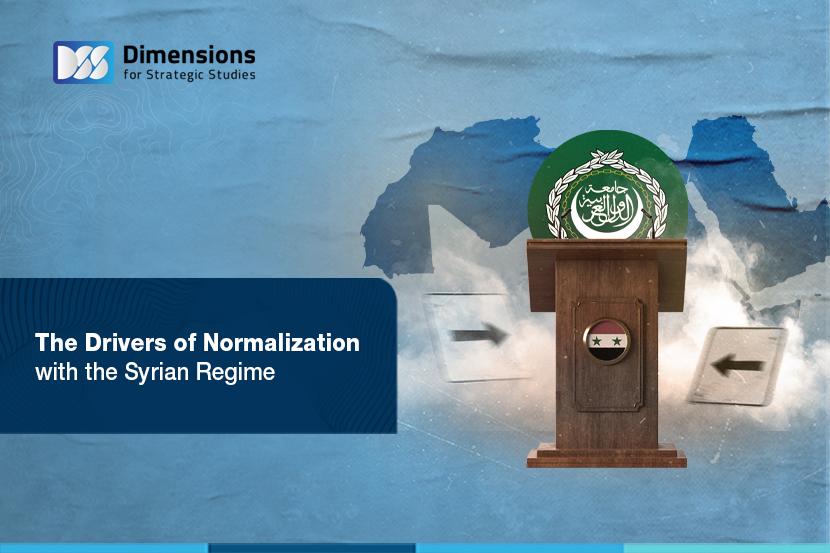
The Drivers of Normalization with the Syrian Regime
2024-07-265466 view
Introduction
The first signs of international and regional rapprochement with the Syrian regime date back to mid-2017, when neighboring Jordan began indicating that it may move to reset its relations with the regime after years of devastating civil war. About a year later, the United Arab Emirates began preparing to reopen its embassy in Damascus, a step it completed in late 2018, ending a diplomatic crisis that had lasted for nearly seven years.
The drive for Arab normalization with the Syrian regime gathered momentum in May 2023, when President Bashar al-Assad was invited to attend an Arab Summit in Jeddah. This was a sign that the host, Saudi Arabia, was also mending its relations with the regime, a process that culminated in the two governments exchanging ambassadors by early 2024.
In parallel with these developments, between 2022 and 2023, Türkiye repeatedly made clear its readiness to fix ties with the Syrian regime and to cooperate on the questions of repatriating Syrian refugees and on tackling terrorism. Finally, in 2024, several top European officials visited Damascus and met their Syrian counterparts—most notably, the Czech foreign minister.
Conclusion
The Middle East has changed radically since the start of the Syrian uprising in 2011, and international dealings with the Syrian regime have evolved accordingly. The regime’s international allies, particularly Russia, have worked hard to prevent its collapse, as well as deploying their economic and political influence to influence Syria’s neighbors, pushing them to adopt new approaches towards Damascus.
The priorities of many countries involved in Syria have also shifted in response to international and regional developments, pushing them to rethink their foreign policies, notably in the case of Saudi Arabia.
Yet the future of Syria and its relations with international stakeholders will be prey to the complexity of the situation, the large number of countries involved, and the fact that this conflict has contributed enormously to international tensions and conflicts for more than a decade. Therefore, nothing short of a comprehensive solution in Syria is likely to return the regime’s relations with its rivals to normal.
To read this essay in full (in Arabic), click here.





